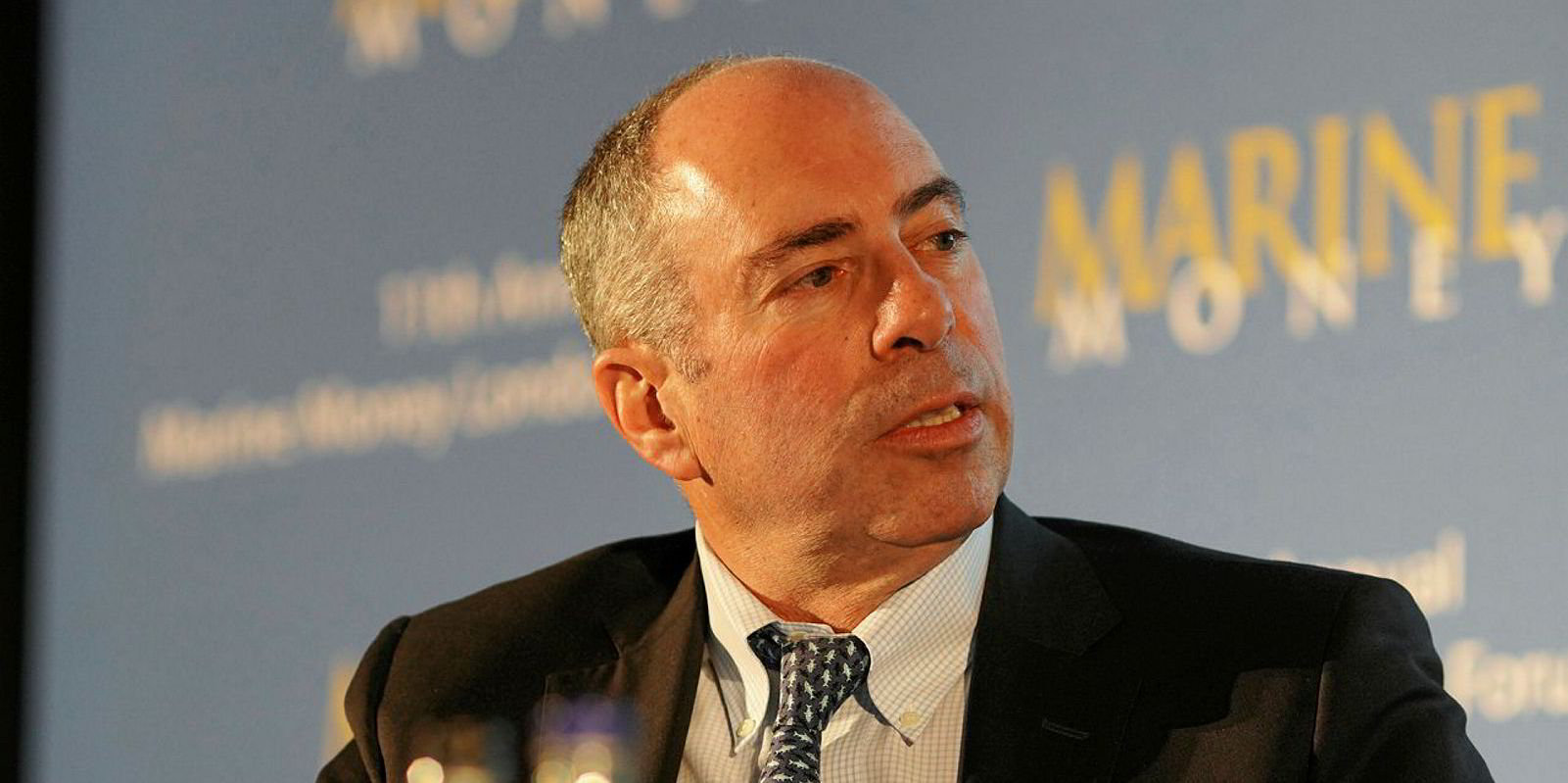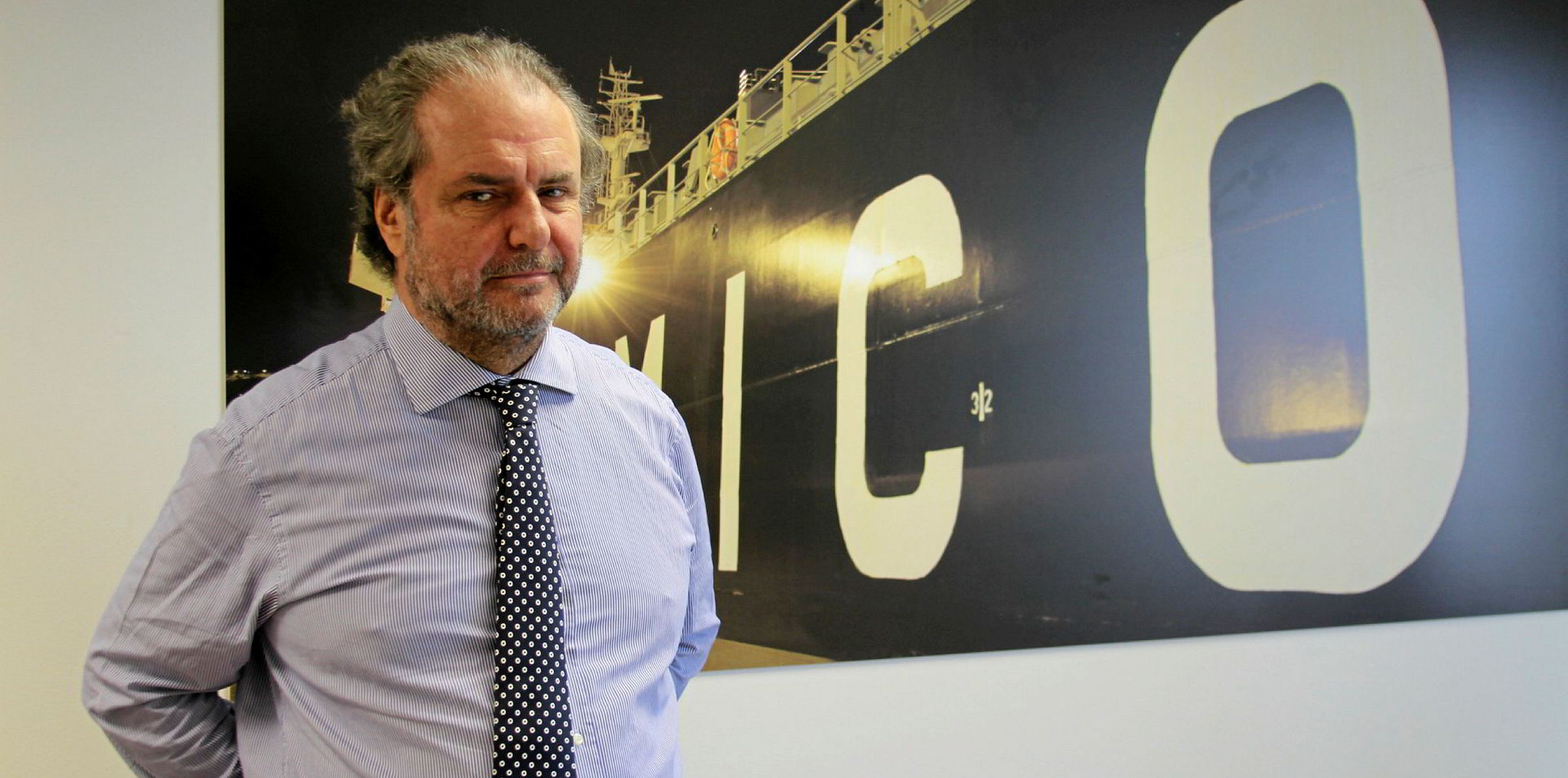Product tanker owners are facing great market uncertainty as demand for floating storage begins to fade, according to Italian shipping executive Paolo d’Amico.
The past six weeks has seen a significant build-up of clean petroleum products stored at sea, with brimming onshore tanks across the globe following the coronavirus-triggered oil demand collapse.
With this development taking large tonnage out of trading, MR and LR tankers rose to all-time highs last month and have remained at healthy levels.
But d’Amico, the chairman and chief executive of d’Amico International Shipping (DIS), said charterers are demanding fewer floating storage options in recent deals as oil demand shows signs of recovery.
Floating storage is “fading” in clean tankers, d’Amico told TradeWinds in a phone interview.
“There is less inducement to do storage,” he said.
Data from Kpler showed 81.1m barrels of clean products were stored at sea as of Monday, down from a record high of 85.4m barrels on 9 May.
Uncertain demand outlook
Having built large inventories due to contango play and logistics constraints, oil firms have started to destock some products with the relaxation of lockdown measures in some major economies.
This will lead to “a little bit softer” product tanker markets in the short run, but the degree of correction is uncertain as new demand patterns are still emerging, according to d’Amico.
Italians are looked at like aliens to be kept away…In certain counties we are not even allowed to do [voyages]
Paolo d’Amico
“[This] very much depends on what sort of the world we are going to have tomorrow,” he said.
“The only thing I know is that we are going to change our way of doing things somehow and, of course, oil consumption…will be different.”
Oil analysts have expected gasoline and jet fuel to suffer the largest falls in demand this year, with demand for travel taking a hit from the Covid-19 pandemic.
Using China as a guidance because it was the first hit by the outbreak, d’Amico suggested road fuel consumption could turn out to be higher than expected as workers prefer driving over public transports to prevent infections.
But jet fuel demand is expected to stay depressed as people avoid air travel over virus fears, he admitted.
More front cover
In view of uncertainty, DIS has been envisaging more period charters to secure future cash flows.
“[This is] not because I think the market is going to collapse the day after tomorrow, but because I don't know what is going to happen,” d’Amico said.
VesselsValue recorded 74 period charter deals for product tankers in April, one of the busiest in recent memory.
But most deals were believed to be linked to short-term storage requirements, with limited appetite from charterers for deals lasting for more than 12 months.
While DIS has also been fixing some short charters for ship positioning and other reasons, it generally prefers charters between one and three years, according to d’Amico.
The average coverage ratio of DIS’ fleet of about 40 MRs and six LR1 tankers was already at a high level of 64.6% in the first quarter. The Milan-listed company has also covered 53% of available vessel days between April and December at $16,379 per day.
With some charters set to expire soon, DIS is aiming to extend them at close to $20,000 per day for an unspecified long period, d’Amico suggested.
Clarksons Research has assessed the prevalent three-year rate for a non-scrubber, eco MR at $17,375 per day, up $1,125 from the level seen in end-March.
Crew headaches
Among other business risks, d’Amico has highlighted the difficulty in crew change as the utmost.
With travel restrictions and port quarantine measures across the globe, the International Chamber of Shipping and the International Maritime Employers’ Council estimated 150,000 seafarers could struggle to complete their shifts by 15 May.
Aside from pushing up operating expensive, the crewing woes are seriously hampering seafarers’ welfare, d’Amico said.
“We have to change the crew and we can’t…there is no solution. Every day is a different story,” he added.
With Italy being one of the epicentres for the outbreak, the matter has been further complicated by some Italian seafarers on board DIS vessels, d’Amico said.
“Italians are looked at like aliens to be kept away…In certain counties we are not even allowed to do [voyages],” he said.







